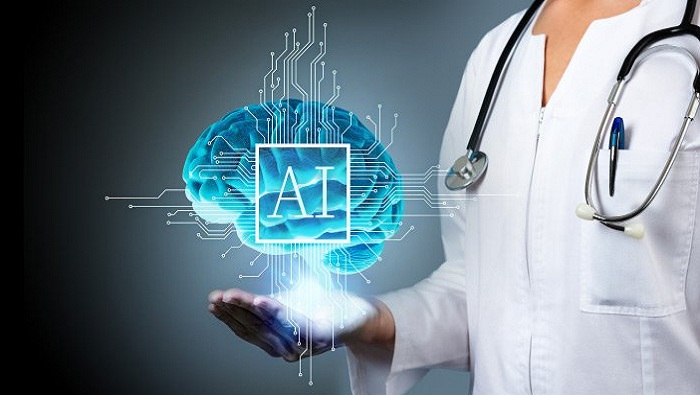Benefits of AI in Healthcare
Artificial Intelligence (AI) has revolutionized numerous industries and healthcare is no exception. In this article, we will explore the various benefits of AI in healthcare and how it is transforming the industry.
Enhanced Diagnostic Accuracy
AI-powered systems have shown exceptional capabilities in diagnosing diseases accurately. By analyzing vast amounts of patient data, AI algorithms can detect patterns and identify potential health issues that might be missed by human physicians. With increased accuracy, early detection of diseases becomes possible, leading to timely treatment and improved patient outcomes.
Efficient Data Analysis
The healthcare industry generates an enormous amount of data every day, making it challenging for medical professionals to analyze and derive valuable insights. AI algorithms can process and analyze this data rapidly, identifying trends, predicting outcomes, and assisting in decision-making. By leveraging AI, healthcare providers can make more informed decisions, leading to better patient care and resource allocation.
Personalized Treatment Plans
Each patient is unique, and AI can help tailor treatment plans to individual needs. By analyzing patient data, including medical history, genetic information, and lifestyle factors, AI algorithms can suggest personalized treatment options. This level of customization improves patient satisfaction and treatment effectiveness, ultimately leading to better health outcomes.
Streamlined Administrative Tasks
The administrative burden in healthcare can be overwhelming, often leading to inefficiencies and increased costs. AI can automate various administrative tasks, such as appointment scheduling, billing, and record-keeping. By reducing manual work, healthcare providers can focus more on patient care, leading to improved efficiency and reduced administrative costs.
Improved Patient Monitoring
AI-powered devices and wearables enable continuous patient monitoring, even outside traditional healthcare settings. These devices can collect real-time data on vital signs, activity levels, and other health parameters. AI algorithms can analyze this data and alert healthcare professionals when abnormalities are detected. This proactive approach to patient monitoring allows for early intervention and prevention of potential health complications.
Enhanced Drug Discovery
Developing new drugs is a complex and time-consuming process. AI can significantly speed up the drug discovery process by analyzing vast amounts of data, including scientific literature, clinical trial results, and genetic information. By identifying patterns and predicting drug efficacy, AI can assist researchers in identifying potential drug candidates more efficiently. This acceleration in drug discovery could lead to the development of life-saving medications in a shorter timeframe.

The benefits of AI in healthcare are vast and have the potential to revolutionize the industry. From enhancing diagnostic accuracy and personalizing treatment plans to streamlining administrative tasks and improving patient monitoring, AI is transforming healthcare for the better. By leveraging the power of AI, healthcare providers can deliver more precise, efficient, and personalized care, ultimately improving patient outcomes.
Frequently Asked Questions – Benefits of AI in Healthcare
1. What are the main benefits of AI in healthcare?
AI in healthcare can improve diagnosis accuracy, enhance treatment planning, automate administrative tasks, enable personalized medicine, and assist in drug discovery.
2. How does AI improve diagnosis accuracy in healthcare?
AI algorithms can analyze large amounts of medical data, including patient records and imaging scans, to identify patterns and make accurate diagnoses faster than humans.
3. What role does AI play in treatment planning?
AI can analyze patient data, medical literature, and clinical guidelines to suggest optimal treatment plans, taking into account individual patient characteristics and medical history.
4. Can AI automate administrative tasks in healthcare?
Yes, AI can automate tasks like appointment scheduling, medical coding, and billing, freeing up healthcare professionals’ time to focus on patient care.
5. How can AI enable personalized medicine?
AI can analyze genetic data, medical records, and lifestyle information to identify personalized treatment options and predict patient outcomes more accurately.
6. In what ways can AI assist in drug discovery?
AI can analyze vast amounts of biomedical data to identify potential drug candidates, predict their efficacy, and accelerate the drug discovery process.
7. Does AI have the potential to improve patient outcomes?
Yes, AI can help healthcare providers make more informed decisions, leading to improved patient outcomes, reduced medical errors, and better overall quality of care.
8. Are there any ethical concerns regarding the use of AI in healthcare?
Yes, ethical concerns include patient privacy, data security, algorithm bias, and the potential for AI to replace human healthcare professionals, requiring careful regulation and oversight.
9. Can AI assist in early disease detection?
Yes, AI algorithms can analyze patient data to detect early signs of diseases, enabling timely interventions and potentially improving treatment outcomes.
10. How can AI contribute to healthcare research?
AI can analyze large datasets, identify patterns, and generate insights that can contribute to medical research, clinical trials, and the development of new treatment approaches.




